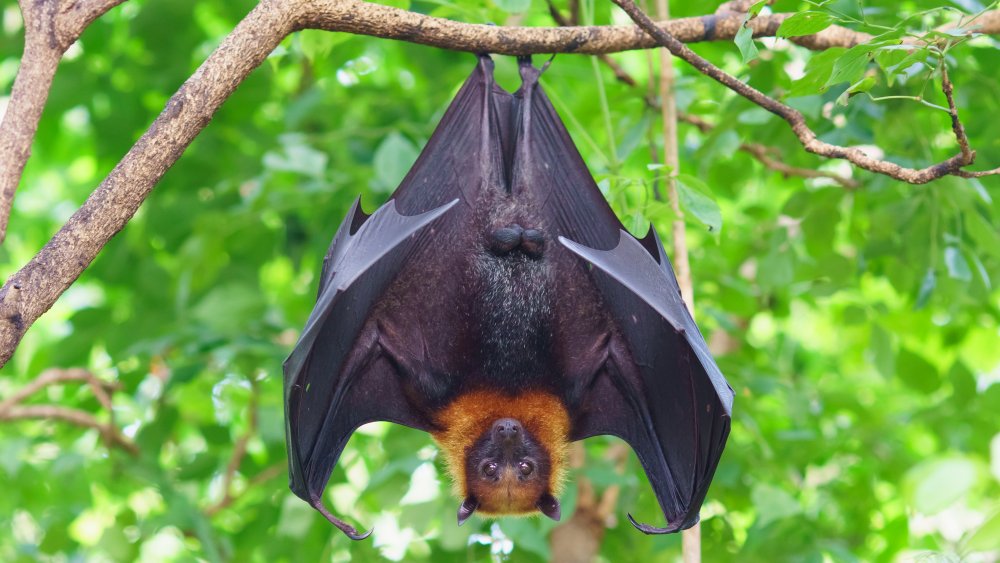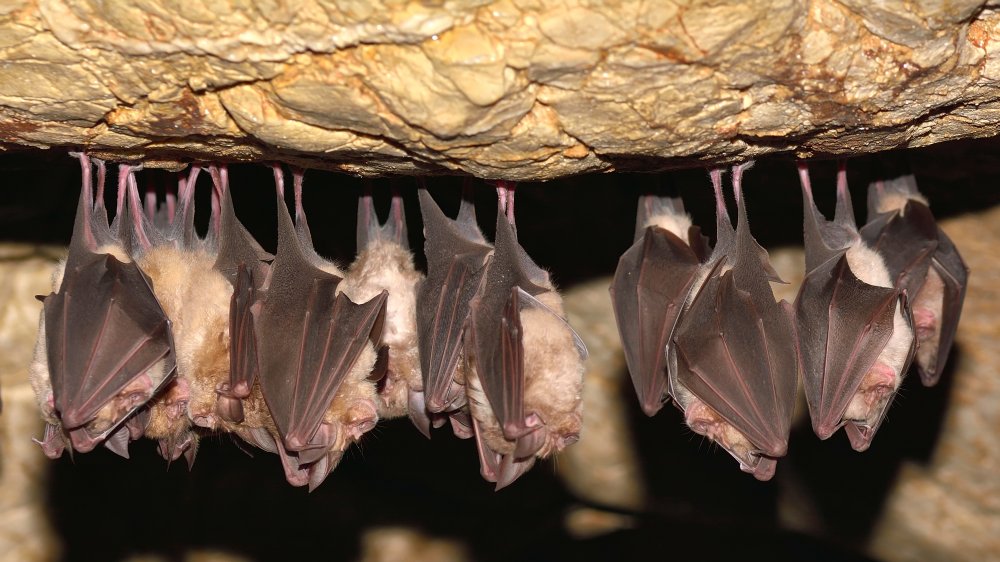The Real Reason Bats Don't Get Sick From The Viruses They Carry
Bats get a bad rap. On the plus side, if they didn't, Bruce Wayne would have had to adopt something else to fight crime — like, say, a wolverine (oops, taken) or a tick (oops, also taken). There are myths aplenty about bats (if you get one stuck in your hair you have to get all your hair cut off, plus bat cooties, probably) but the science is much more interesting than the tales, regardless of origin.
When you're talking bats, you're talking about more than 1,200 species around the globe, says World Atlas. They're flying mammals, and nocturnal, foraging for food from dusk till dawn. No light? No problem. Bats navigate and hunt and generally manage their passage through life through echolocation — emitting high-pitched sounds that bounce off objects, enabling them to judge distances, obstacles, and even prey.
The U.S. Geological Service points out that bats are marvels of pest control, consuming insects that would otherwise destroy crops and forests. They also pollinate. They're social creatures, living in colonies — over 20 million gather in Bracken Cave every year, outside San Antonio, Texas, for one example — and they'll range from very, very small (the bumblebee bat, sometimes called the Kitti's hog-nosed bat; it weighs just two grams, says Mother Nature Network) to nightmare (the flying fox, topping two pounds and which really does look like an airborne fox).
Bats like to hang out together
Another bit of folklore about bats: They carry rabies! This one's actually true. According to the Centers for Disease Control and Prevention (CDC), bats top the list of wild animals carrying and transmitting rabies — 33 percent of cases in 2018. The bats themselves rarely develop the rabies virus; they carry and transmit it.
The fact that bats are mammals gives them a head start in terms of passing sickness to humans. It's called "zoonotic spillover," says Live Science — a virus that jumps from one species (say, bats) to humans. Rabies isn't the only one. Ebola is thought to originate with bats; there's some evidence that Covid began there as well. Researchers have found as many as 130 viruses carried by bats, reports NPR. But the bats don't get sick. Why not?
It has to do with flight. As a flying mammal, their systems have adapted to ramp up for flight, to levels that would be fatal to other mammalian creatures. The immune system of bats has evolved to compensate for those system stresses. Their bodies can repair cell damage in ways other species can't. "And their systems don't overreact to infections, which keeps them from falling ill from the many viruses they carry (and also prevents conditions like diabetes and cancer)," says NPR. This, in turn, demonstrates that it isn't always a virus that makes us ill; rather, it's the body's response to the virus.

